These days, more and more businesses are setting up hybrid teams. While they do come with their own set of challenges, the benefits can outweigh these obstacles. Some companies choose to live entirely virtual, while others aren’t at that stage yet but can still benefit from a mix of remote and in-office employees.
There are many different security standards that organizations need to abide by to protect their data from being compromised. In this article, we will look at how you can better secure your company’s data by employing some simple security practices.
Hybrid Teams More Vulnerable to Attacks
Security is often compromised in hybrid teams simply because of the way these groups are set up. Here’s why:
- Lack of Visibility: It may be hard to monitor what employees do when they’re out of sight, either for one day or for several months at a time. This lack of visibility is the number one problem that hybrid teams face.
- Distributed Responsibility: With so many people working on a project, who’s responsible for what and when?
- Security as an Afterthought: Without security measures in place from the start, it can be easy to overlook potential threats.
Best Practices for Hybrid Teams
To ensure the success of your hybrid team, you need a good security plan from start to finish. Here are a few things that a solid security strategy will include:
Multi-Factor Authentication
While you should never give away your personal account passwords, you might need to access a secure system you’ve never used before; there are ways to verify it’s really you. You can set up multi-stage processes that include several verifications for each stage.
This is one of the most common and effective ways to secure data on any network. It works by requiring more than one piece of information to successfully log in. This prevents others from using a stolen password or account, as they’ll also need access to something physical, like a cell phone or security token.
Sensitive Data Classification
Sensitive data is any type of personal information that needs to be protected. Typically, this falls under a few key categories:
- Personally Identifiable Information: Any information that can be traced back to a person, such as names or social security numbers.
- Classified Data: Anything from documents with sensitive company information to financial data about the company itself.
Password Protection
First and foremost, it is of the utmost importance that you never store passwords in a plain text document or rely on keyloggers to have enough security. Make sure that all passwords are encrypted with a password management solution instead because you can’t hide information that is already exposed.
If you do need to give out access to your system, make sure it’s using multi-stage processes so the person only gets access to what you want him to see without compromising everything else.
Password rotations are an essential part of maintaining overall security. If you don’t change all of your passwords periodically, it will be easy for hackers to access your accounts using the login credentials they obtained from a previous data breach.
Backup Data Frequently
You would think this goes without saying, but if you don’t keep regular backups of important company data, there’s a chance it may be gone forever.
Make it difficult for hackers to penetrate your network by installing software updates as soon as they’re available and always keep reliable anti-virus or anti-malware solutions on all of your devices.
Use a Corporate VPN
This is how most employees will access data remotely, so make sure that it’s secure by using at least 128-bit encryption and strong authentication methods, like multi-factor authentication.
Consider using an encrypted USB drive instead of emailing sensitive documents to your colleagues or external contacts. Or, you can always use your regular email with encryption.
Know Where You’re Vulnerable
One way to make sure you have a solid security system in place is to regularly audit it. This will help reveal any holes in your security system and give you a chance to patch them before anyone can take advantage.
The best security measures in the world won’t amount to much if your employees don’t know how or why to use them. Security awareness training is designed to teach people about different types of cyberattacks, ways they can be perpetrated against your company, and how to avoid them.
Any security plan is only as good as the employees who use it. When you have a regular auditing process, security training so your team knows what to look out for, and a reliable security solution in place, you will have a strong system with little room for breaches.
For the best IT service solutions for your business, contact ITS Group today.
